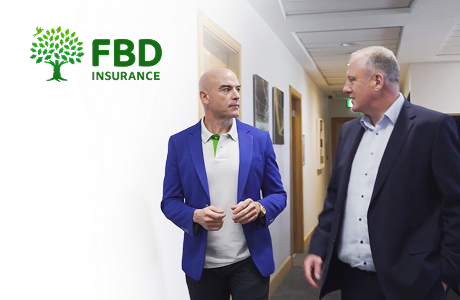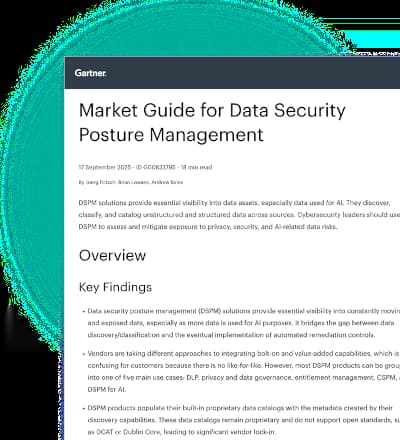PRODOTTI IN EVIDENZA
INTEGRAZIONI DI PRODOTTO
GUARDA COME FUNZIONA
Come proteggere i dati ovunque

Scopri come funziona il nostro software di rilevamento e risposta ai dati
HAI ALTRI DUBBI?
Parla con un espertoRichiedi una valutazione gratuita del livello di rischio dei datiLA NOSTRA PIATTAFORMA
EL PROBLEMA CHE RISOLVIAMO
IN QUALI SETTORI OPERIAMO
TESTIMONIANZE DEI CLIENTI
Perché la finanza è il bersaglio principale degli attacchi IA

Identifica la precisione e la creazione di report trasparenti

HAI ALTRI DUBBI?
Richiedi una valutazione gratuita del livello di rischio dei datiParla con un espertoGUIDA
Guida pratica alla prevenzione della perdita di dati per dirigenti
Consulta la guida

GUIDA
Forcepoint AI Mesh
Scopri AI Mesh

REPORT DI ANALISI
Gartner: 2025 Market Guide for Data Security Posture Management
Leggi il report

RISK ASSESSMENT
Richiedi una valutazione gratuita del livello di rischio dei dati
Affidati a noi

PERCHÉ SCEGLIERE FORCEPOINT
CONFRONTO CON LA CONCORRENZA


